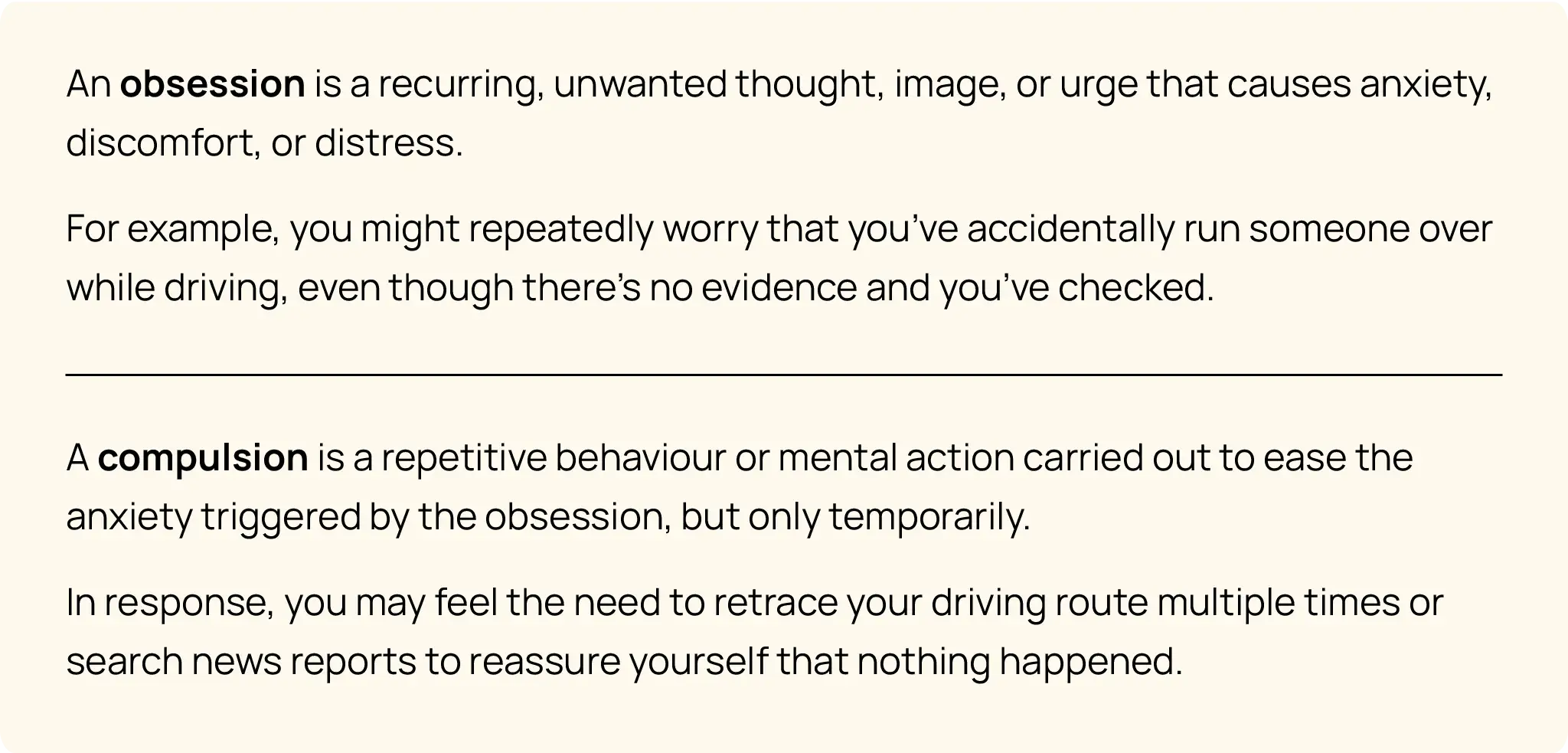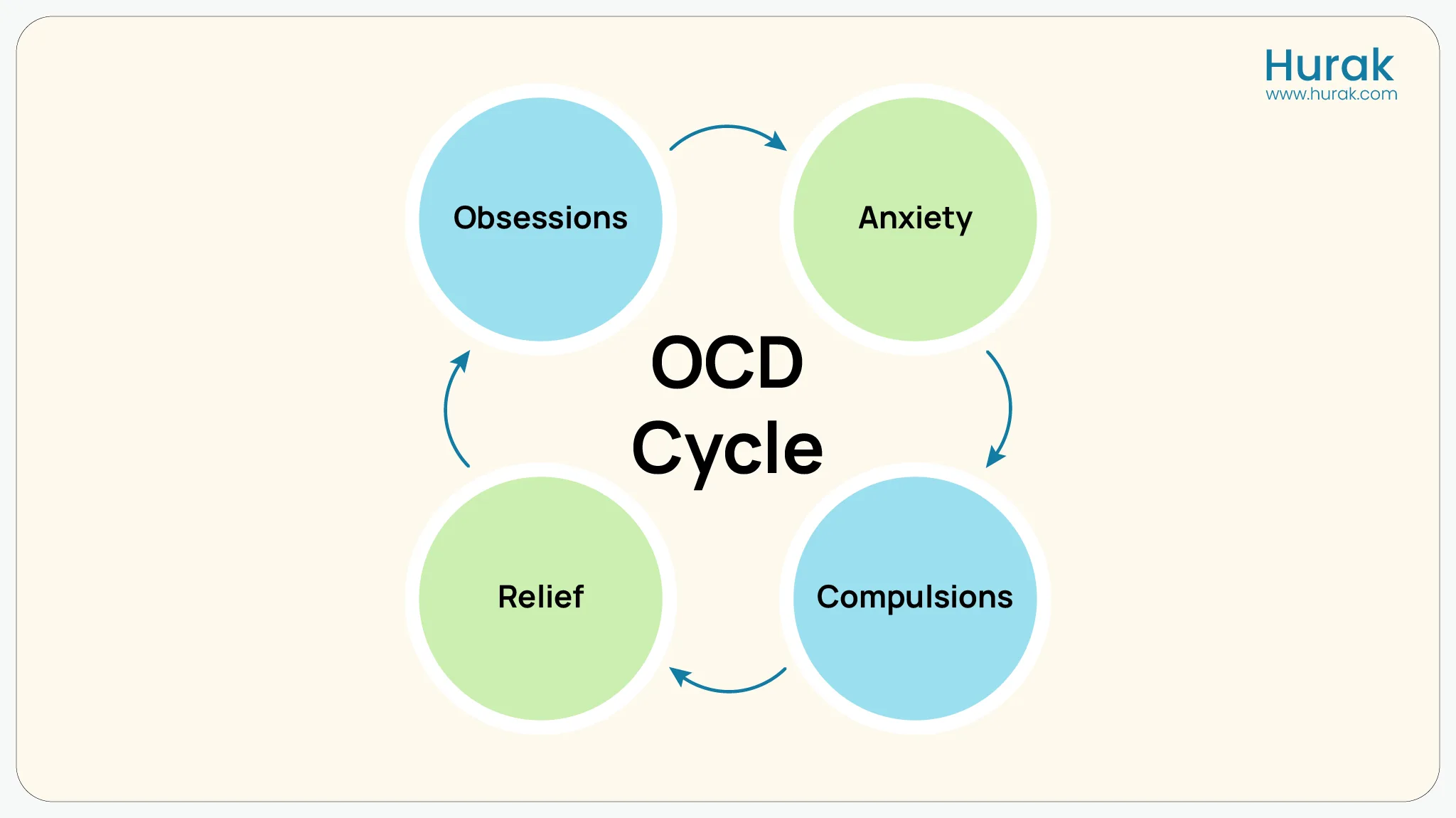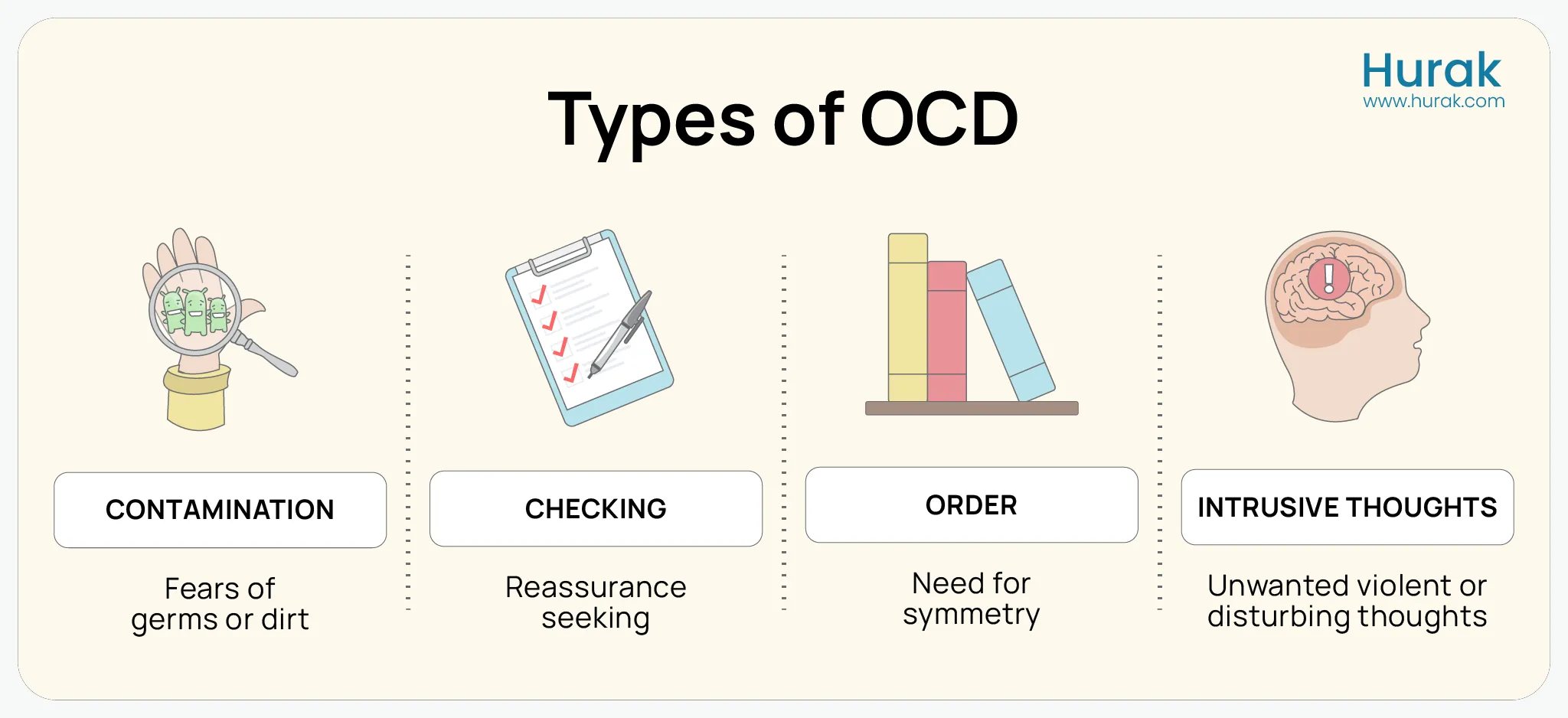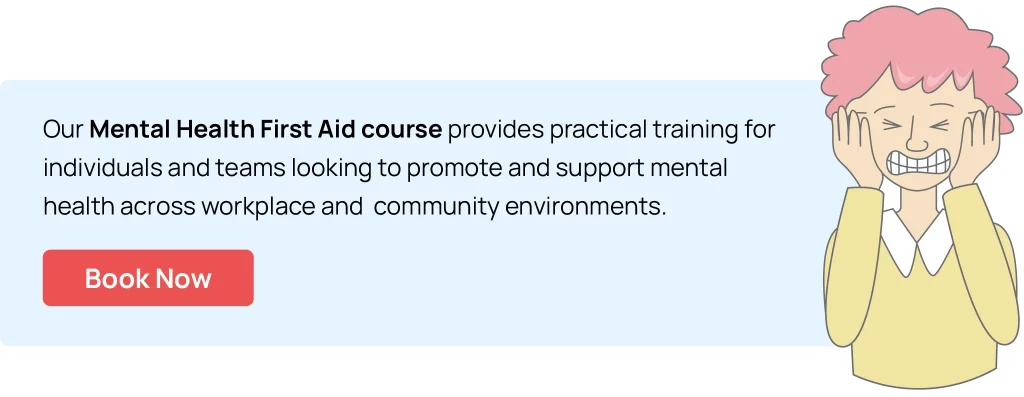
Introduction
Obsessive-Compulsive Disorder (OCD) is a long-term mental health condition where individuals experience uncontrollable, recurring thoughts (obsessions) and repetitive behaviours (compulsions). Often misunderstood or misused in everyday language, OCD is far more than a preference for cleanliness or organisation. This article explores the true meaning of OCD, its symptoms, causes, and the most effective treatments available, including how to stop OCD from interfering with daily life.

What is the meaning of OCD?
When someone experiences obsessions, they often feel an intense urge to carry out specific behaviours (compulsions) to reduce the discomfort. Even if they try to resist, the intrusive thoughts tend to return and interfere with whatever they’re doing. Eventually, the person gives in to the compulsion, which brings short-term relief. But this relief is temporary; before long, the obsessions return, and the cycle starts all over again.

OCD behaviour: symptoms of obsessions and compulsions
It is essential to understand that OCD includes both obsessions and compulsions. However, sometimes a person may experience only obsessive symptoms. Learn more about the symptoms below.
Symptoms of obsessions
Obsessions are uncontrollable and unwanted thoughts, images, or impulses that appear repeatedly. These can be disturbing, frightening and leave you feeling anxious and uncomfortable. Obsessions often follow common themes.
Types of obsessions | Examples |
Fear of contamination | Feeling that you might get infected by germs, someone else is spreading germs, or everything around you is contaminated |
Intrusive thoughts, images and impulses | Violent images, persistent doubt about a relationship, or fear of harming someone |
Fear related to symmetry | The need for everything to be perfectly aligned or something bad might happen |
Fear of failing to prevent harm | Worrying that someone might hurt your loved ones or yourself due to your inattention |
Symptoms of compulsions
Compulsions are behaviours or rituals you feel the urge to perform to deal with the anxiety caused by obsessions. These actions are time-consuming, and any relief is usually temporary. Common compulsions include:
Compulsions | Examples |
Checking | Checking your body for contamination or repeatedly checking doors and windows to ensure safety |
Rituals | Arranging items to maintain symmetry |
Connecting thoughts | Counting to a specific number before starting tasks, or repeating words or phrases. |
Reassurance | Frequently seeking confirmation from others that everything is fine |

What causes OCD?
The causes of OCD have not been fully understood yet, but research suggests some factors contributing to the development of the condition:
Biological factors
- OCD can run in families, suggesting a genetic link
- Abnormalities in different brain areas can contribute to the condition
- An imbalance in neurotransmitters can cause OCD
- Some other neurological conditions can increase the risk.
Psychosocial factors
- Obsessions and compulsions may develop as a way to cope with stress.
- Being very self-critical or sensitive to judgment may make someone more likely to develop OCD.
- Events like job loss or significant changes can trigger symptoms.
- Difficult or traumatic experiences in early life may increase the risk.
How to manage OCD: Effective strategies
Many people with OCD hesitate to seek help due to embarrassment or fear of being judged. But OCD is a recognised mental health condition — and getting support is not only okay, it’s essential.
Therapy and medication
One of the most effective ways to manage OCD is through Cognitive Behavioural Therapy (CBT) — a type of therapy that helps individuals recognise and change negative patterns in thinking and behaviour. Within CBT, the most important technique used to treat OCD is called Exposure and Response Prevention (ERP). ERP works by gradually exposing individuals to the thoughts or situations that trigger their obsessions while helping them resist the urge to carry out compulsive behaviours. Medications, often in combination with ERP, can significantly reduce symptoms.
Self-help
- You can refer yourself directly to the NHS talking therapies.
- You can contact NHS 111 directly and find mental health support.
- You can contact your local GP in case of an emergency.
Frequently Asked Questions
What is the complete form of OCD?
The complete form of OCD is Obsessive-Compulsive Disorder.
Is OCD a disability?
It can be considered a disability when it significantly impairs the ability to perform daily activities.
How can I treat OCD?
Therapy, along with medication, is helpful. Consider taking professional help if needed.
What are the types of OCD?
Common themes in OCD include contamination, checking, symmetry/order, and intrusive thoughts.
Can workplaces help people with OCD?
Yes. With proper accommodations and MHFA-trained staff, employees with OCD can thrive.
Explore Our Range of First Aid and Mental Health Training Courses
Looking to broaden your first aid knowledge? Here are more expert-led courses we offer at Hurak:
- Emergency First Aid at Work (EFAW) – A one-day Level 3 course suitable for low-risk workplaces, covering essential first aid skills.
- Basic Life Support (BLS) Course – Learn critical life-saving procedures including CPR, AED usage, and choking response.
- Mental Health First Aid (MHFA) – Equip yourself with the skills to support mental well-being and manage mental health crises in both workplace and community environments.
Looking for more information on Mental Health First Aid? Visit our Mental Health First Aid courses to explore available training options.





